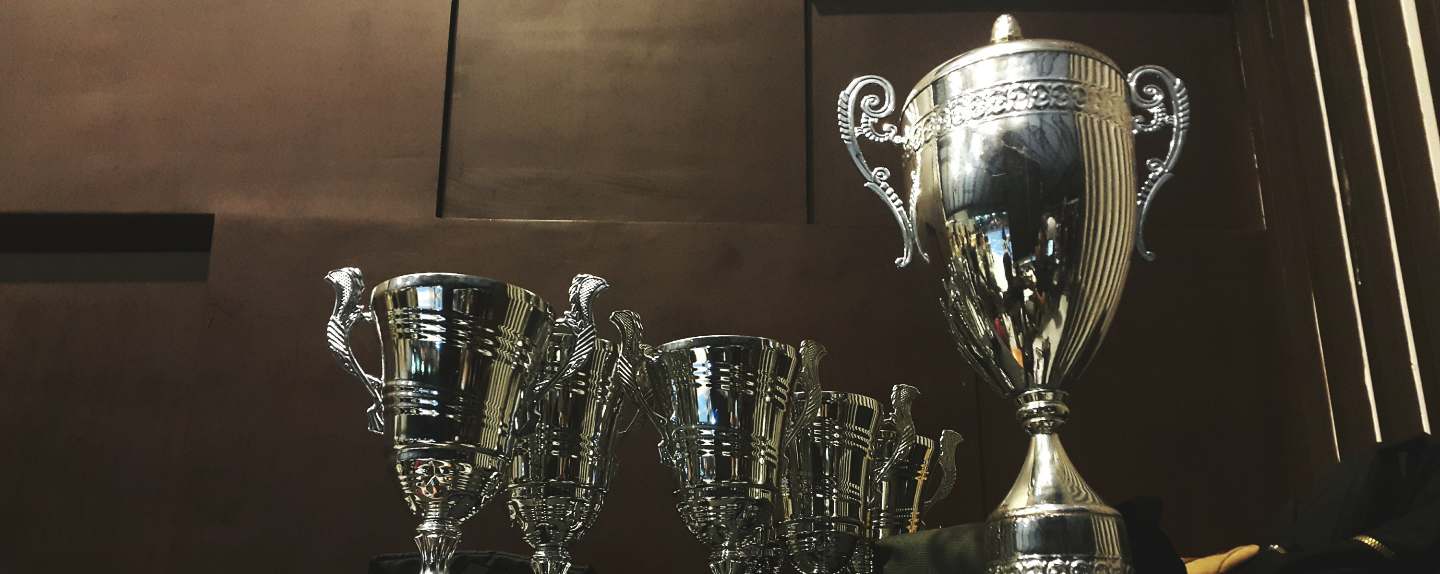
Winning streak
For three years in a row, Weinberg College students have claimed the field’s most prestigious prize in comparative literary studies
By Rebecca Lindell
When a small academic program generates headlines in its field for three consecutive years, people sit up and take notice.
That is the case with the College’s program in Comparative Literary Studies, whose students have won the highest national honor in the field for the last three years running: the American Comparative Literature Association’s Presidential Undergraduate Prize.
The streak began with Mary Francis Bradford ’16 winning the prize in 2017, followed by Emma Montgomery ’17 in 2018. Then Max Rowe ’18 achieved a three-peat for Northwestern earlier this year, with yet another first-place finish in the prestigious national competition.
“It’s quite remarkable to have this run of success,” observes Associate Professor of English Harris Feinsod, who directs Northwestern’s graduate program in comparative literary studies.
“One of the best in the country”
The American Comparative Literature Association is the nation’s largest academic body devoted to comparative literature — the study of literature across linguistic and national traditions. The Presidential Undergraduate Prize is the association’s annual recognition of the highest achievement in undergraduate research and writing.
The succession of awards won by Northwestern students “clearly positions our undergraduate comp lit studies program as one of the best in the country,” said Assistant Professor of English and Comparative Literary Studies Tristram Wolff, who advises and mentors students in the program. “It’s a testament to the rigorous preparation, meticulous research, writerly polish and all-around professionalism of students who study and graduate from the comp lit program at Northwestern.”
All three of the award-winning Weinberg College graduates “have gone on to wonderful other achievements,” Feinsod says — Bradford to pursue a PhD in Comparative Literature at Harvard University, and Montgomery to complete a Fulbright fellowship in Colombia. Rowe, meanwhile, will head to China this fall to study Chinese literature as a Yenching Scholar at Peking University.
What makes the College’s Comparative Literary Studies program so successful? The very fact that it is a program, rather than a department, allows students to exert “a degree of creative control in putting together their course of study,” Wolff said.
A multi-faceted approach
The faculty who teach in the program hail from across the College, from the departments of French and Italian, English, Asian languages and cultures, classics, art history, and more, and they welcome the multi-faceted approach students often take in putting together their theses, Wolff said.
Such projects are no small undertaking. Students who pursue honors in comparative literary studies must write a thesis that is often 50 or more pages, focusing on authors, artists or aesthetic movements in several linguistic or disciplinary traditions. To study these areas, students must become proficient in a second and often a third language.In recognizing the research by the Northwestern students, the society praised the scope and depth of their work. Bradford’s 2017 thesis on the performativity of the painter Frida Kahlo and indigeneity was hailed for its “ambitious” and “really meticulous research.” The essay by Montgomery, who explored African-American and black diasporic poets, was singled out for its theoretical ambition and the intellectual creativity of its attention to experimental poetic language. Rowe, who wrote a study of a little-known Chinese modernist author, was honored for the unexpected ways his analysis adapted rhythmic and “cinematic” techniques to interpretations of literature.
Inspirational faculty
The award-winning graduates, for their part, credited the Northwestern faculty who teach in the program for inspiring them to think deeply and critically about their work.
Wolff, Rowe said, was consistent in pushing students to go beyond boundaries in their research. “He would often ask us, ‘What makes your work different from a thesis written for the Department of Radio/Television/Film, or the Department of Asian Languages and Cultures?’” Rowe recalled. “This question helped keep me moored to the comparative purpose of my thesis.”
Bradford described the program as “incredibly interdisciplinary” and credited its faculty, particularly her adviser, Associate Professor of Spanish and Portuguese and Comparative Literature Alejandra Uslenghi, for preparing her to pursue graduate work in the field.
“They encouraged us to step out of our comfort zones and take broad leaps into the unknown,” she said.
Back to top